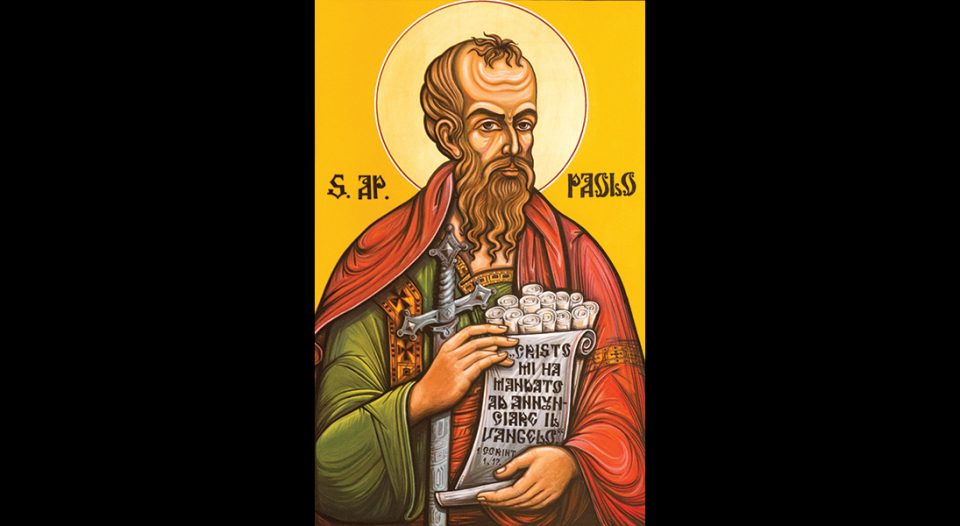Editor’s note: This article was originally published on Feb. 22, 2018.
Starting early in the Epiphany season and stretching long into summer Sundays, the lectionary leads us through the apostle Paul’s passionate and at times painful conversations with the church in Corinth. This city was, like many of our communities today, a place of vibrant religious and cultural diversity where prosperity and poverty existed side by side. The Corinthian believers were trying to figure out how to be the church in such a place. Like us, they struggled to find faithful answers but often fell into patterns shaped more by cultural preferences than by the gospel of God’s grace. These letters are Paul’s pastoral guidance and an effort to further form them as God’s holy people.
In 1 Corinthians, Paul responds to several issues that probably sound familiar to us: disagreements over evaluating and paying preachers; differing opinions about how to live faithfully with regard to sexuality and marriage; and questions about gender roles, being a community with differing ethnic and religious traditions, the proper conduct of worship and how to manage financial gifts for the poor.
Across Paul’s answers to these various issues, two things seem central. The first is the unity of the church. Although the believers in Corinth may disagree about many of these things (as we may also), God’s grace has made them brothers and sisters. In fact, this is the first issue that Paul addresses in 1 Corinthians: “Now I appeal to you, brothers and sisters, by the name of our Lord Jesus Christ, that all of you be in agreement and that there be no divisions among you, but that you be united in the same mind and the same purpose” (1:10).
As the letter goes on, Paul will show how this unity is founded upon God’s love for us revealed in Christ, a love that is described so poetically in the familiar 13th chapter. If the Corinthians will recognize that the church is the unified body of Christ, then they will also see that what really matters is not winning arguments or being spiritually spectacular, but living out this love toward one another.
Secondly, Paul repeatedly points the Corinthians back to the cross of Jesus to define who they are: “For I decided to know nothing among you except Jesus Christ, and him crucified” (2:2). The Corinthian believers were struggling with how to identify what is good and true, spiritual and powerful, wise and blessed, and how to live accordingly. There were plenty of alluring criteria advocated by their culture: money, status, growth, patriotism, competition, education, beauty. We are still tempted to adopt such standards for the church’s mission. Instead, Paul insists that what gives the church its proper shape is the cross of Jesus. There we encounter God’s unlimited love that defies the habits of human culture. The crucified Christ shapes the church to live with cruciform love for all.
Paul insists that what gives the church its proper shape is the cross of Jesus. There we encounter God’s unlimited love that defies the habits of human culture. The crucified Christ shapes the church to live with cruciform love for all.
It seems that 1 Corinthians failed. In 2 Corinthians we hear that the congregation found other preachers who matched cultural ideals of power better than Paul. The church at Corinth has come close to abandoning Paul and his cross-shaped gospel. However, he is determined to not let his spiritual children wander off, even if they have been difficult, because Christ’s own love has bound him to them.
So Paul, in 2 Corinthians, explains why the gospel means his ministry, along with the church it serves, must look different from the cultural criteria of success and power. Contrary to all human expectations and possibilities, it is through Christ crucified that God has reconciled the whole world to God’s self, and now Paul lovingly appeals to the Corinthians to live out that reconciliation, both with God and with Paul himself (5:18-21).
Though we can hear continuing tensions in his final warning that he will come with harshness if necessary (13:2), there are indications earlier in 2 Corinthians that healing between Paul and this congregation has begun (7:6-16). Writing a bit later in Romans 16, Paul indicates that the churches in Greece have joined him in an offering for the poor in Jerusalem, and so it seems that he and the church at Corinth were reconciled in the end. That is a sign of God’s grace, with which Paul begins and ends both these letters (1 Corinthians 1:3, 16:23; 2 Corinthians 1:2, 13:13). The life of the church, with all its strengths and struggles, is always framed by God’s grace.
The Corinthian church wasn’t perfect. At times it was astonishingly flawed, as is true for all our congregations as well. Paul responds by pointing them back to God’s loving grace in the cross of Jesus. That was the good news the Corinthians needed. That same gospel of the cross is what we, their spiritual descendants, hear in these two remarkable letters. It is the word by which we live.





